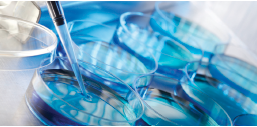This randomized, double-blind, placebo-controlled, parallelgroup study investigated the ability of Bifidobacterium animalis ssp. lactis (BB-12®) and Lactobacillus paracasei ssp. paracasei (L. casei 431®) to modulate the immune system. Healthy subjects (n = 211) consumed a minimum of 109 colony-forming units of BB-12® (capsule) or L. casei 431® (dairy drink) or a matching placebo once daily for six weeks. After two weeks, a seasonal influenza vaccination was given. After six weeks, changes in vaccine-specific plasma IgG, IgG1, and IgG3 were significantly greater in both probiotic groups versus placebo (L. casei 431®, P = 0.01 for IgG; P < 0.001 for remaining comparisons). The number of subjects obtaining a substantial increase in specific IgG (≥ 2-fold above baseline) was significantly greater in both probiotic groups versus placebo (BB-12®, P < 0.001 for IgG, IgG1, and IgG3; L. casei 431®, P < 0.001 for IgG1 and IgG3). Significantly greater vaccine-specific secretory IgA levels in saliva were observed in both probiotic groups versus placebo (BB-12®, P = 0.017; L. casei 431®, P = 0.035). Similar results were observed for total antibody concentrations but no differences were found for plasma cytokines or innate immune parameters. Br J Nutr. 2012 Mar;107(6):876-84. PMID: 21899798







